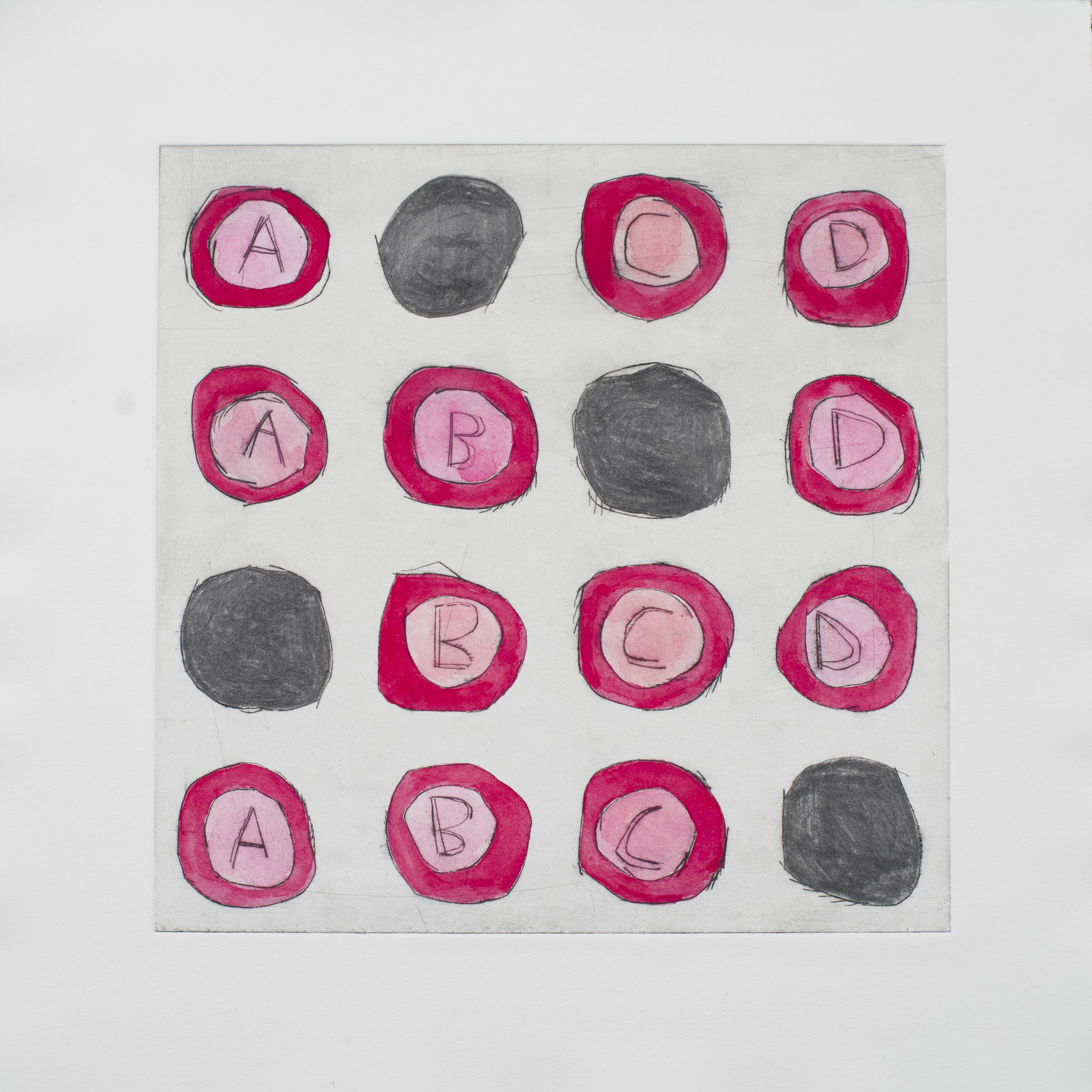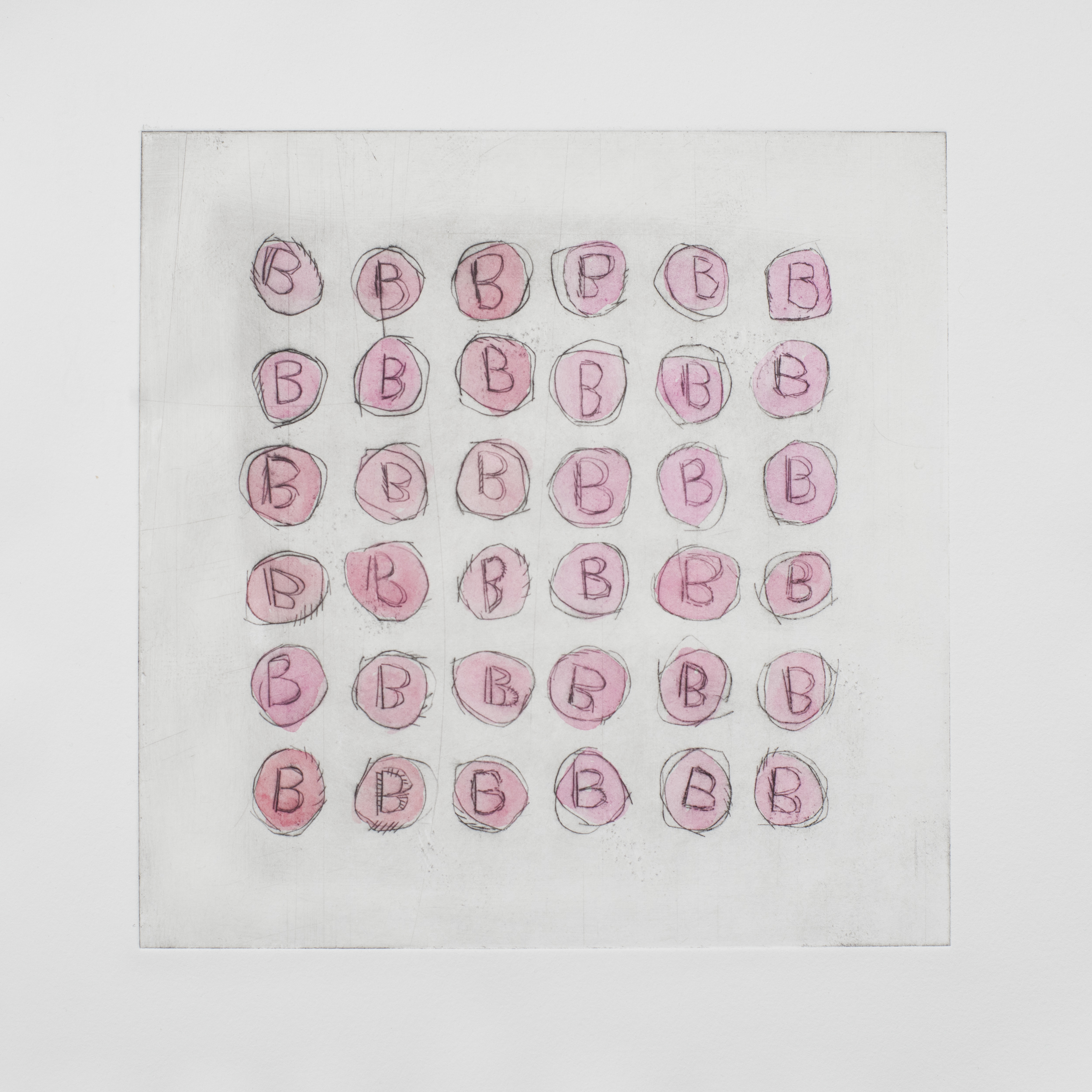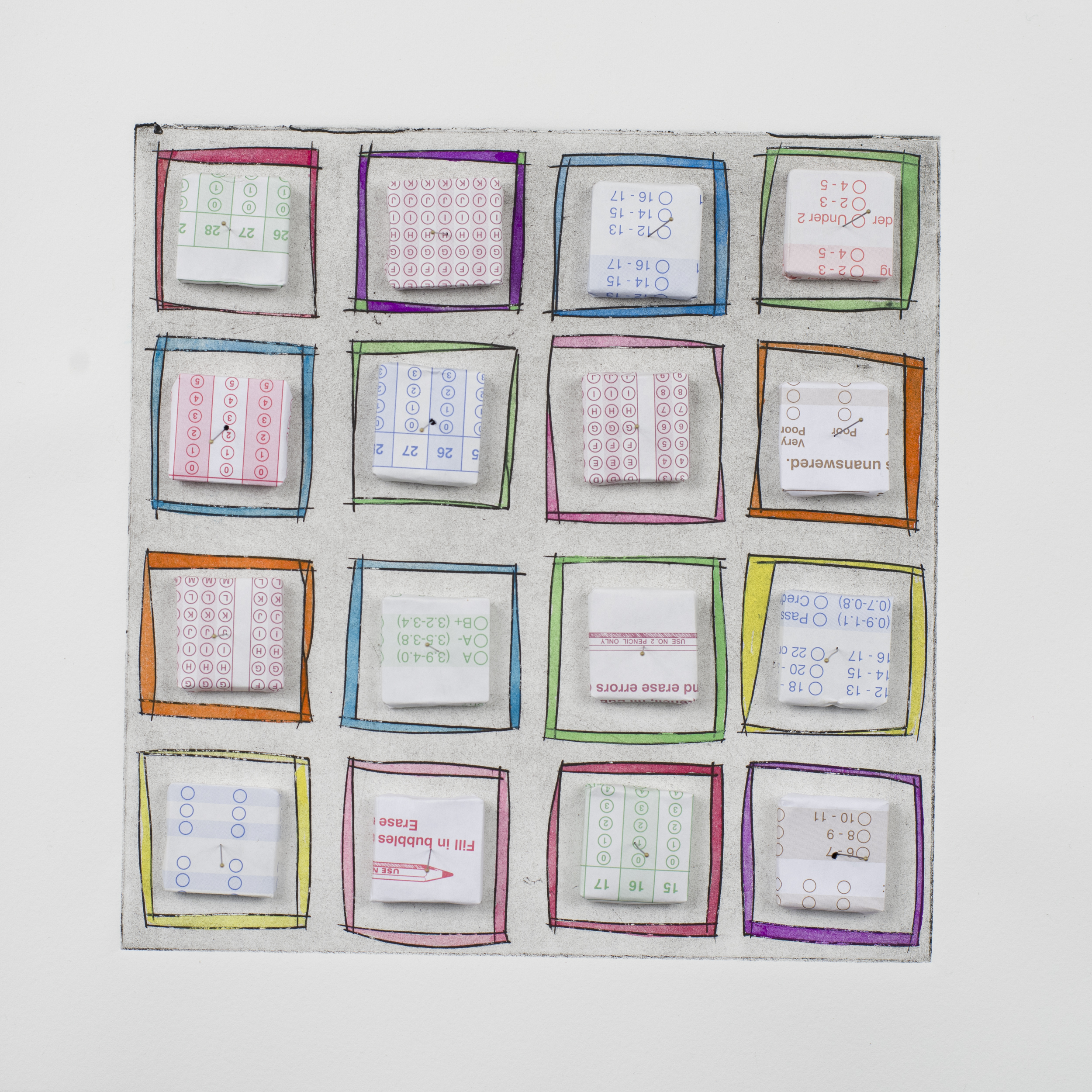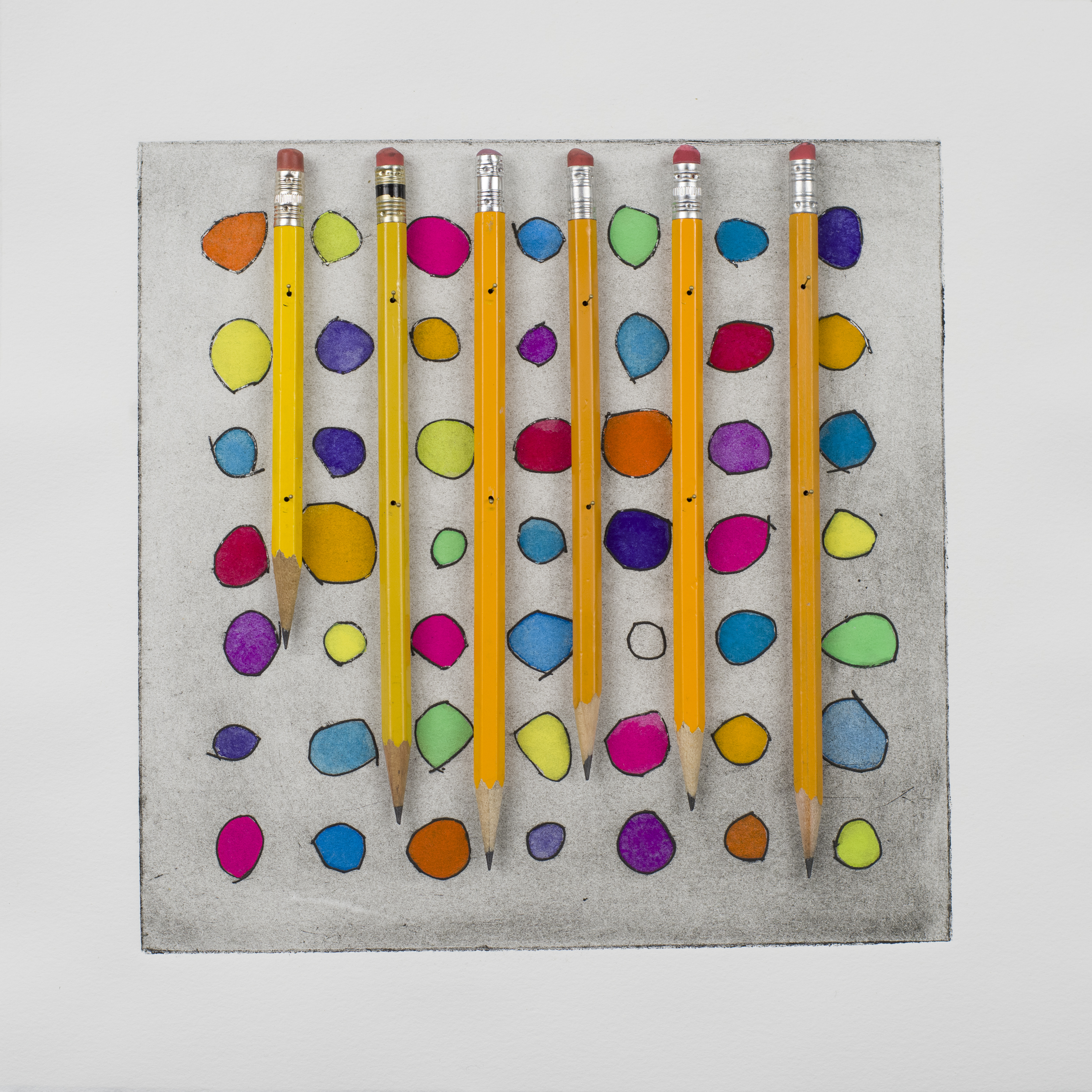









Test Anxiety / 2014, mixed media, 16" x 16"
This project plays with standardized testing and its role in U.S. public schools. It was inspired by Mike Rose’s (2004) writing on public education, democracy, and equity. He writes that test results tell us a lot about high-scoring students - the system and economy are working for their learning styles and socio-economic positions. What standardized test results do not reveal is how the students who underperform on them can excel in other areas. Not all successful people who managed to navigate through the system and rise in their fields scored well on standardized tests. I’m curious about these students who are tracked into certain classes based on their test scores. How can we work for systemic change in our public schools to meet their educational needs and assess their learning equitably? What don’t we know about them? What valuable contributions do they make to our democracy?
I advocate for alternative means of measurement and assessment for these students such as portfolios, written qualitative reflections, and presentations. Supporting alternative (and more expensive means) of measurement I advocate for smaller class sizes, innovative teacher hiring and development practices, and adequate funding for public schools.
The work in this series was featured in the Journal of Social Theory in Art Education, volume 36, 2016 Navigating Divides. http://scholarscompass.vcu.edu/jstae/
Rose, M. (2004). The mind at work: Valuing the intelligence of the American worker (2nd ed.). New York, NY: Viking